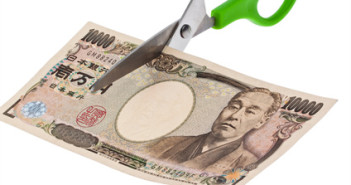The fresh rate decision by the BOJ is probably not the last one, as political pressure continues, says Michael Derks of FxPro.
In the interview below, Derks also discusses the opportunities that the opportunities for the SNB, the dire situation in Britain, he fate of the debt ceiling, and more.
Michael joined FxPro in May 2010 having been previously at Deutsche Bank, Rothschild and Schroders. He is a multi-discipline investment and market strategist/economist with extensive expertise in FX, strategic and tactical asset allocation, fixed income, equities, property and alternative assets. An accomplished economic and investment writer and researcher, Michael holds a Bachelor of Economics degree from Macquarie University in Sydney.
With the recent rise of EUR/CHF, could the SNB use the opportunity to raise the peg to 1.25? Or rather sell euros and put pressure on the single currency?
It would certainly be tempting for the SNB to do so, but at this stage possibly premature. The issue they have is that thus far very little of the CHF selling has been either retail or corporate-based. It has been mostly institutional, and mostly lifting of hedges rather than anything else. Should the SNB witness more broad-based participation in the CHF sell-off, then they would feel emboldened to lift the ceiling.
The Republicans are heading towards some kind of partial solution regarding the debt ceiling. Is the political risk from the US over for the next few months? How can it impact the dollar?
No. The ploy of the Republicans to lift the debt ceiling for a few months merely kicks the can down the road slightly. Ultimately, the GOP still want the President to negotiate spending cuts with them on a dollar-for-dollar basis alongside a debt ceiling rise. The problem for the President is two-fold – he has said he will not sign a short term debt deal because it perpetuates uncertainty, and second he does not want to discuss the debt ceiling and spending cuts issues simultaneously. This fiscal fight is still very much ongoing.
The pound has been grinding lower. Would contraction level could accelerate the falls of cable? Is there any other important to factor to watch out for?
Sterling has been soft recently, partly because of euro-repatriation, partly because of concern over the parlous state of the economy, and partly out of a growing worry that the AAA debt rating is under serious threat. Today’s budget figures were a further nail in the coffin for a debt downgrade. Should Friday’s Q4 GDP outcome disappoint to the downside, and with growth in the current quarter not looking too hot either, Britain may well discover that it is back in recession again before long. The rating agencies already have the UK in their sights, and before mid year confirmation of a downgrade from at least one of them will likely be confirmed. All of this will weigh further on sterling in relative terms.
The Canadian dollar hasn’t been enjoying the strong jobs market , higher oil prices and hopes for higher US demand. What is holding back the loonie?
For the past three months, the CAD has traded a very tight range, not unlike the Aussie dollar. Both currencies continue to enjoy safe-haven-like status, although at present the mood of investors and traders has been more courageous in terms of risk (which traditionally benefits these currencies). In effect, the focus of currency markets has been elsewhere, preferring to focus on the yen, the euro, sterling and the Swissie.
The BOJ decision (should be already announced when you read these lines): is it a game changer for the yen, or rather a small move?
Not really. Much of the BOJ’s actions were known beforehand, the only marginal concern was the forward-dated nature of the asset buying commitment. Even so, it is clear that BOJ policy will be even more aggressive in coming months, because the politicians demand it. The new Abe government will soon have the opportunity to appoint a new governor, who be in no doubt of his mandate (stimulate growth, generate inflation). This yen depreciation move is likely not over yet.
